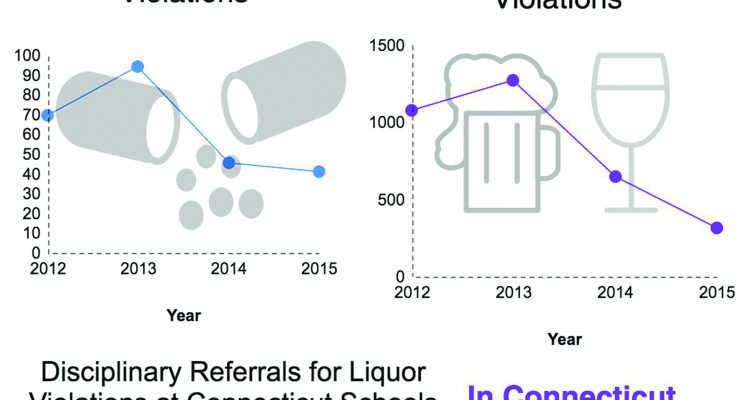For students who struggle with alcohol or drug addiction, Fairfield’s Counseling & Psychological Services is always willing to lend a helping hand.
The Collegiate Recovery Program offered at Fairfield University includes the option of living off-campus in one of two Recovery Houses. According to Susan Birge, director of Counseling Services, this program has gained wide recognition in addition to winning awards.
“The biggest problem for me was loneliness and isolation,” said Drew, a student remaining anonymous due to the Recovery Houses’ protocol. “I didn’t have people I could trust or rely on. Now I have a group of friends that I can trust and rely on. They gave me a good outlook on life. It’s a brotherhood. I wouldn’t change it for the world.”
Drug addiction is almost at an epidemic level now more than ever.
Reported by Connecticut’s medical examiner’s office, 917 people died from overdoses in 2016, which was a 25 percent increase since 2015. Treatment for non-fatal opioid-related overdoses in Connecticut’s acute-care hospitals increased from 895 in 2012 to 1,217 in 2014, reported by the Connecticut Opioid Response report.
According to Birge, Fairfield fits the national trends when it comes to substance abuse. Most students can use substances recreationally and not be impacted, but for a few, it can potentially wreck their lives.
This was certainly the case for Drew, who explained that he blew off and avoided things in his life in order to get high or drunk.
Drew transferred to Fairfield because his mother heard about the Recovery Program and got in touch with Lisa Arnold, Counseling & Psychological Services’ alcohol and drug counselor.
After moving into the off-campus Recovery House, Drew began to see his life turn around for the better.
“I would say that if someone is reading this and knows someone has an issue or has an issue themselves that it’s OK to ask for help and it’s important you do,” Drew commented. “The consequences can be life-threatening.”
Birge explained that the first Recovery House began in the fall of 2013, when students in the Collegiate Recovery Program informed her that living off-campus would assist with resisting temptations involved with dorming on campus. The program consisted of meetings, counseling and a lounge for students in the program to hang out. However, it seems, this was not enough. It was for this reason that the first Recovery House opened to better accommodate these students.
“The benefits of that are that they form a community, they form a kind of a brotherhood, so not only do they have academic support, they go on retreats together, and they have a lot of recreational activities and they do a lot of service work,” said Birge.
In 2016, Counseling & Psychological Services opened a second Recovery House.
Both Recovery Houses are for men; however, as stated by Birge, another house will open for women if there are enough women to live in one.
There are currently only two women in the program, but three would be enough to open another Recovery House for women only. The women instead have the option to live together or in a single on campus or to commute.
On the Collegiate Recovery Program, Birge said, “We have a group of students who are doing really well, academically, socially, they’re giving back to others and they’re deepening their spirituality, so that’s why we think it’s a success.”
Most universities don’t offer private housing for students in programs like the Collegiate Recovery Program, according to Birge. This is why students transfer to Fairfield in order to remove themselves from that environment of substance abuse and addiction.
“There’s a very thorough application admission to be able to live in the houses because we don’t want to jeopardize anyone else’s recovery. So we don’t make anybody,” she said.
To further the mission of the Collegiate Recovery Program, Counseling & Psychological Services, alongside the Collegiate Recovery Program and the Office of the Dean of Students, has chosen to host baseball legend Darryl Strawberry, who will give a talk titled “From Strikeout to Recovery and Hope” in the Regina A. Quick Center for the Arts on April 18 at 7 p.m.
Strawberry, who struggled with alcohol and drug addiction, has been clean and sober for 14 years. He founded the Darryl Strawberry Recovery Centers, as well as Strawberry Ministries, which is about the importance of second chances and having a relationship with your Higher Power, according to Birge.
Birge explained that Strawberry will be dining privately at the Recovery House with the men in the program to speak with them about his life.
“He’s a real inspiration,” Birge added. “He went through some really difficult times … he lost a lot because of alcohol and drugs. He ended up in prison, he ended with serious illnesses and yet he came back … through his spirituality and his dedication to his recovery.”


Leave a Reply